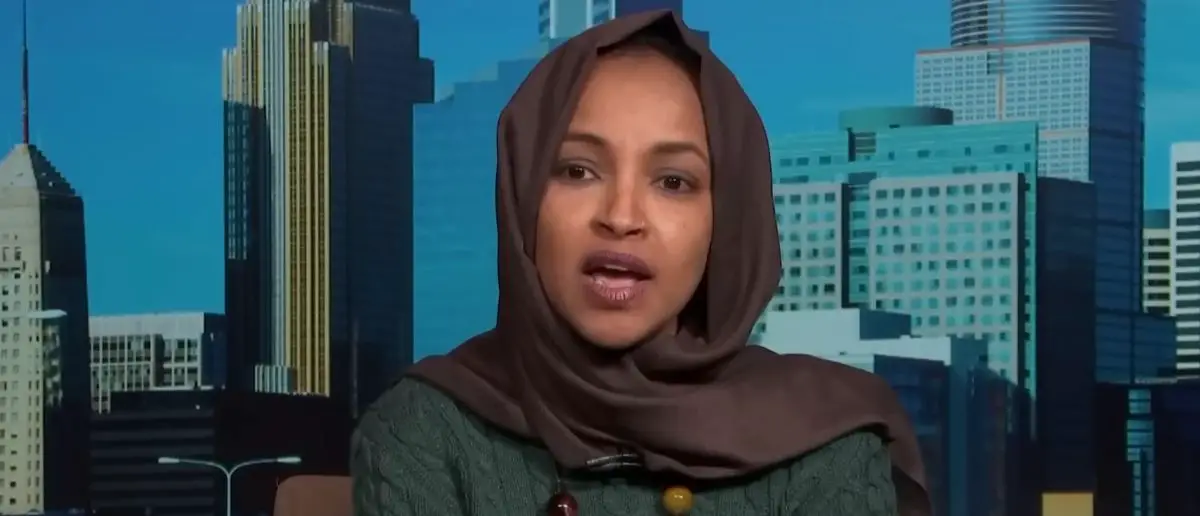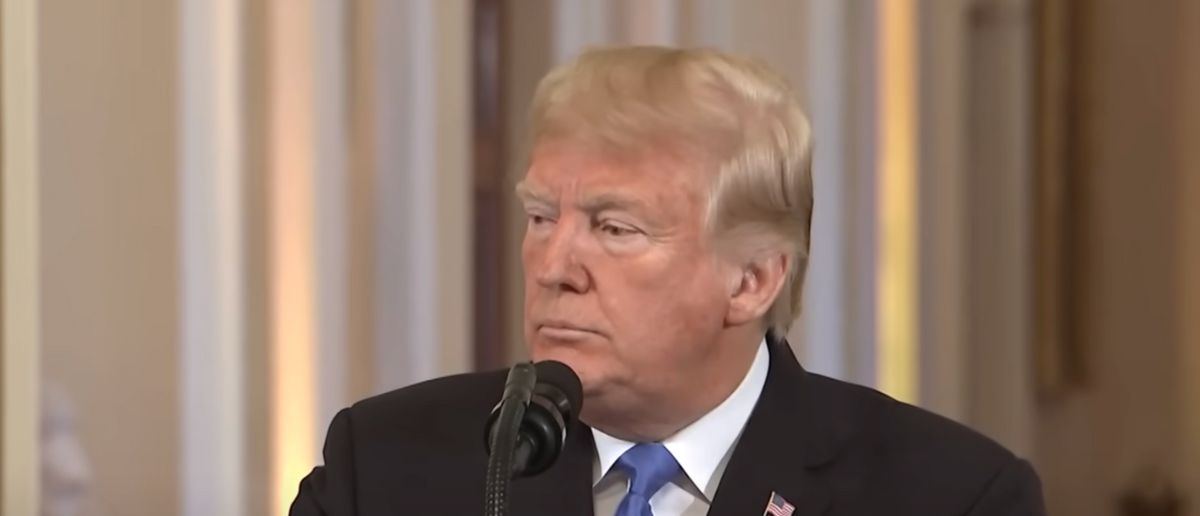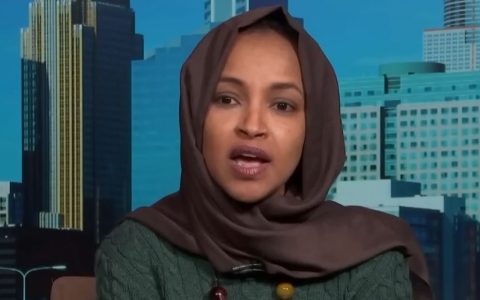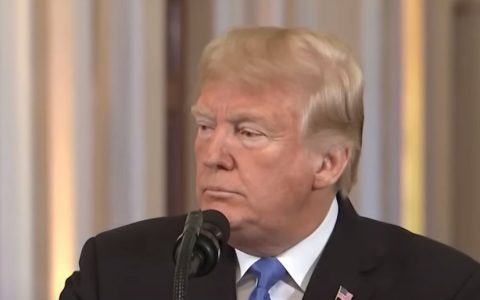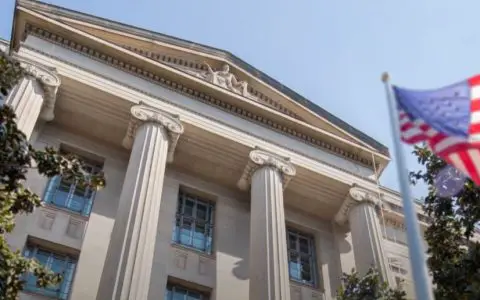
Donald Trump is used to being betrayed. But this one is going to hurt badly.
Because President Trump was stabbed in the back as an ally just proved to be a two-faced liar.
White House Calls Out Retail Giant’s Anti-American Move
The Trump administration is taking aim at Amazon, accusing the e-commerce behemoth of playing political games with its reported plan to display the cost of President Donald Trump’s tariffs alongside product prices on its website. The White House’s sharp rebuke signals a growing tension between the administration and one of America’s largest corporations, raising questions about fairness, economic policy, and corporate motives in a heated political climate.
On Tuesday, White House Press Secretary Karoline Leavitt didn’t hold back, blasting Amazon’s move as a deliberate jab at the administration’s trade policies. “This is hostile and political act by Amazon,” Leavitt told reporters, her words carrying the weight of the administration’s frustration. She argued that the decision to single out Trump’s tariffs reeks of bias, especially when other economic pressures have gone unscrutinized by the retail giant.
Leavitt pointedly questioned Amazon’s timing and selective outrage. “Why didn’t Amazon do this when the Biden administration hiked inflation to the highest level in 40 years?” she asked, drawing a contrast between the current administration’s efforts to protect American industries and the previous one’s economic missteps. Her question resonates with supporters who see Trump’s tariffs as a necessary tool to level the playing field for American workers and manufacturers.
The press secretary didn’t stop there. She framed Amazon’s actions as a betrayal of the very consumers it serves, urging Americans to rethink their shopping habits. “This is another reason why Americans should buy American,” Leavitt added, appealing to patriotic sentiment and reinforcing the administration’s push for domestic production and self-reliance. Her call to action aligns with Trump’s long-standing mantra of putting America first, a message that continues to galvanize his base.
Amazon’s stock felt the heat, dropping more than 2% in premarket trading following Leavitt’s remarks. The market’s reaction suggests that investors are wary of a potential escalation between the administration and the company founded by billionaire Jeff Bezos. While Amazon has yet to respond publicly—CNBC reported no immediate comment from the company—the financial ripple effect speaks volumes about the stakes involved.
The controversy stems from a Punchbowl News report that revealed Amazon’s plan to break down product prices for consumers, explicitly showing the portion attributed to Trump’s tariffs. According to a source familiar with the initiative, this tariff cost will appear right next to each item’s total price, a move that critics argue is designed to cast the administration’s trade policies in a negative light. For an administration focused on reshaping global trade to favor American interests, this public display feels like a direct challenge.
During Tuesday’s press briefing, a reporter pressed Leavitt and Treasury Secretary Scott Bessent on whether Amazon’s move proves that “it’s the American consumer, and not China, who is going to have to pay for these policies.” Leavitt, fresh from a conversation with President Trump, took the lead. “I just got off the phone with the president about Amazon’s announcement,” she said, signaling that the issue has the commander-in-chief’s full attention. Her decision to respond herself indicates the administration’s determination to control the narrative.
Amazon isn’t alone in drawing attention to tariff-related costs. Chinese fast-fashion retailers Shein and Temu have recently added hefty surcharges to their prices, with Temu slapping an “import charge” that inflates costs by roughly 145% per item. These moves by foreign companies provide context for Amazon’s decision, but the White House sees a key difference: Amazon, as an American company, is expected to support domestic priorities rather than amplify criticism of policies aimed at countering China’s economic influence.
The clash also hints at a shifting dynamic between Trump and Bezos, whose relationship has been a rollercoaster. Once a frequent target of Trump’s ire, Bezos has recently taken steps to mend fences. In December, he expressed optimism about Trump’s second term, noting that the president seemed “calmer and more confident.” Amazon’s $1 million donation to Trump’s inaugural fund further fueled speculation that Bezos was seeking to align with the administration
Instead of attacking President Trump with their tariff-pricing model, why doesn't Amazon promote a label to identify products that are actually MADE IN AMERICA? pic.twitter.com/s2fVNKWwYI
— Townhall.com (@townhallcom) April 29, 2025
.
However, Bezos’s influence over the Washington Post, which he owns, has stirred controversy. His directive to limit the paper’s opinion section to pieces defending “personal liberties and free markets” drew accusations of currying favor with Trump. For an administration that values loyalty, Amazon’s tariff display feels like a step backward, undermining the goodwill Bezos may have been trying to build.
Leavitt faced questions about whether Bezos remains a Trump supporter, but she sidestepped speculation about their personal ties. “Look, I will not speak to the president’s relationships with Jeff Bezos, but I will tell you that this is certainly a hostile and political action by Amazon,” she said. Her response keeps the focus on Amazon’s actions rather than personal allegiances, a strategic move to maintain pressure on the company.
The administration’s stance resonates with Trump’s economic vision, which prioritizes American jobs and industries over globalist trade practices. Tariffs, while controversial, are a cornerstone of this approach, designed to protect domestic manufacturers from cheap foreign imports. Supporters argue that Amazon’s decision to spotlight tariff costs misrepresents the policy’s intent, ignoring the long-term benefits of revitalizing American production.
Critics of Amazon’s move see it as a calculated attempt to sway public opinion against the administration. By framing tariffs as a direct hit to consumers’ wallets, the company risks alienating shoppers who support Trump’s efforts to confront China’s trade practices. The White House’s swift response suggests it’s ready to fight back, casting Amazon as out of touch with the economic patriotism driving the administration’s agenda.
Leavitt’s fiery remarks show that the White House isn’t backing down, framing the issue as a matter of national loyalty. For now, the ball is in Amazon’s court, but with the administration’s economic agenda at stake, this clash could redefine the relationship between corporate America and a president determined to put his country first.
Stay tuned to the DC Daily Journal.

